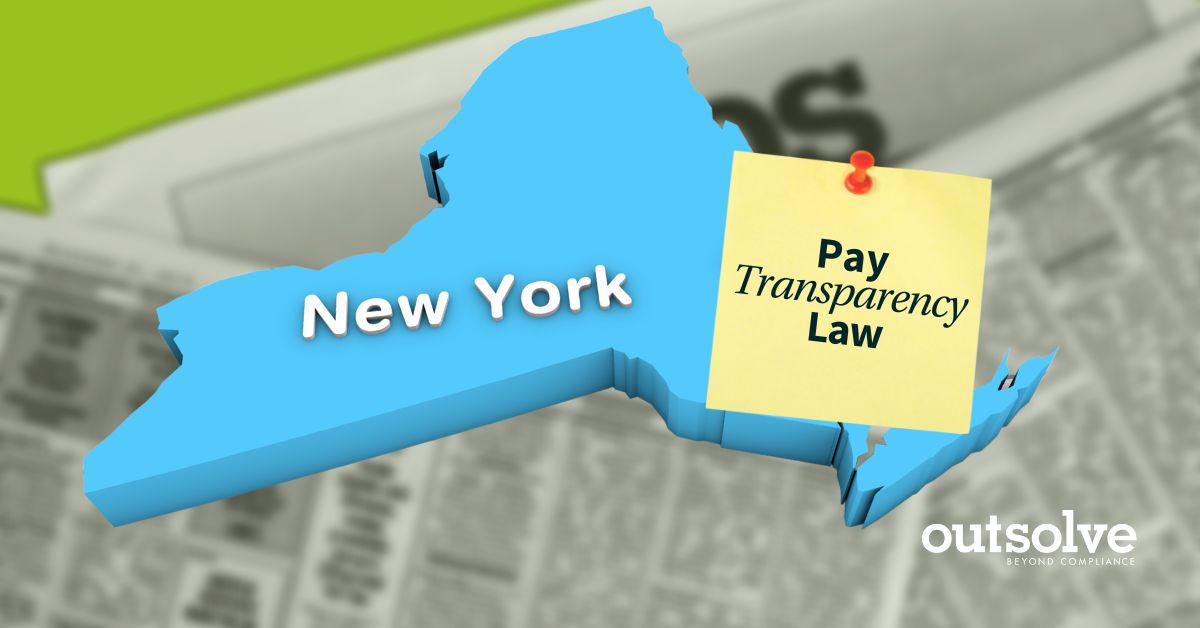
Covered employers with more than four employees and is effective September 17, 2023
On December 21, 2022, New York Governor Kathy Hochul signed legislative bill S.9427-A/A.10477 which amends the New York Labor Law and requires covered employers who do business in the State to abide by new pay transparency requirements. Effective September 17, 2023, employers with at least four employees and non-temporary help employment agencies must include in any advertisement for a job, promotion, or transfer opportunity the minimum and maximum annual salary or hourly range of pay. This state law is similar to the New York City Salary Transparency Law; however, the state law also requires employers to disclose a copy of a job description if one exists and imposes employer recordkeeping requirements.
In addition to maintaining records to demonstrate compliance, employers must also keep the historical compensation salary ranges of each job, promotion, or transfer opportunity and the job description of the open position. Employers must also provide a “general description of other forms of compensation to be offered if applicable, including but not limited to fringe benefits, bonuses, stock options, or commissions.”
The Governor indicated that “This historic measure will usher in a new era of fairness and transparency for New York’s workforce and will be a critical tool in our efforts to end pervasive pay gaps for women and people of color.”
Violations may result in civil penalties of up to $3,000. Even though it is not expected to include a private right of action, individuals may file a complaint with the New York State Commissioner of Labor.

OutSolve’s Take
Although the passage of this law comes as no surprise to New York employers, it does demonstrate another state sending a message of the need for pay transparency. In preparation of the Washington State Equal Pay and Opportunities Act taking effect on January 1, 2023, the State issued a final Administrative Policy making it the most stringent requirements in the country.
In anticipation of the growth of these laws throughout the country, many large employers are voluntarily disclosing their pay information. For example, companies like American Express, Google, IBM, Microsoft, and Expedia announced that they will post pay range information in their job advertisements nationwide. Even if your organization has not decided whether to take this approach, it is important to develop and execute “action-oriented program” to evaluate gender, race, or ethnicity-based pay disparities. We know that OFCCP could request to see support documentation of such programs to address pay disparities.
For clients who wish to take preventive measures to evaluate their pay practices, OutSolve’s Pay Equity Analysis Services are available. Additional information on OutSolve’s Pay Equity Analysis or other compliance services may be obtained at info@outsolve.com or by calling 888-414-2410.
Founded in 1998, OutSolve has evolved into a premier compliance-driven HR advisory firm, leveraging deep expertise to simplify complex regulatory landscapes for businesses of all sizes. With a comprehensive suite of solutions encompassing HR compliance, workforce analytics, and risk mitigation consulting, OutSolve empowers organizations to navigate the intricate world of employment regulations with confidence.
Recent Posts

Countdown: Final Days of the 90-Day Safe Harbor Period for EO 11246
Related Posts

EEO-1 Reporting Requirements: A Complete Guide
EEO-1 Reporting Deadline 2024 Recently submitted documents to the Office of Management and Budget (OMB) indicate a proposed open data collection...

New Jersey Pay Transparency Laws: What You Need to Know
The topic of pay equity continues to gain attention across the United States, and New Jersey (NJ) is no exception. In fact, NJ is preparing to...

Why Companies and Institutions Should Fear False Claims Act Lawsuits When Signing Coming Federal Contract and Grant Certifications
OutSolve has invited John C. Fox, Esq. as a guest blogger providing legal insights on EEO and compliance issues. The views expressed in his posts are...

